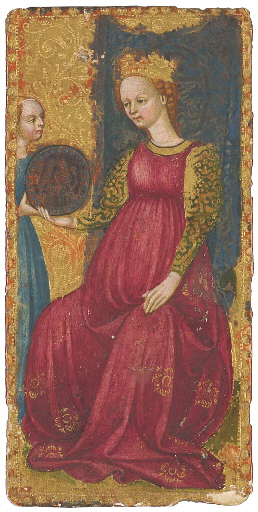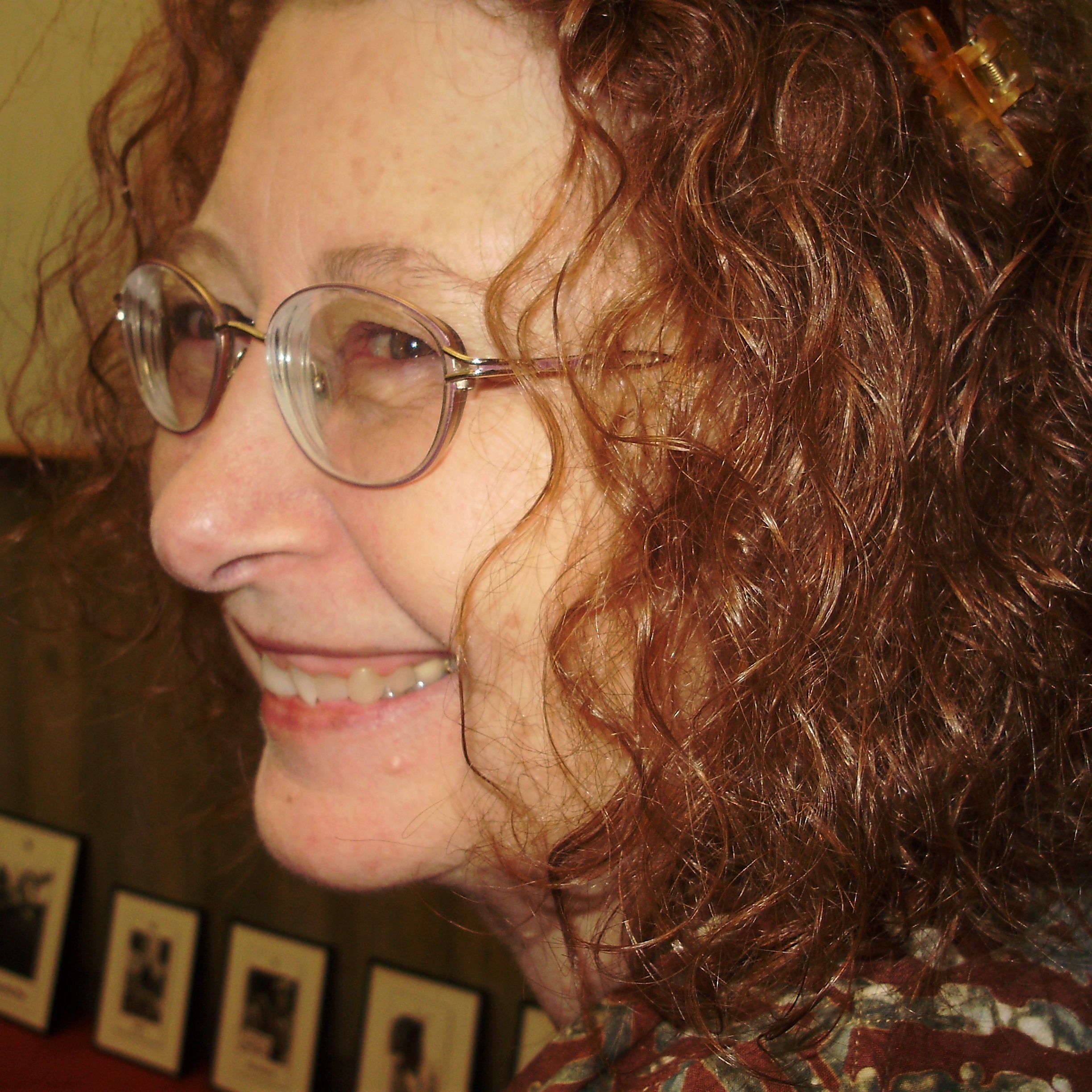 Beginners often have the most trouble reading Court Cards, especially if several of them appear in one spread. In general, Court Cards represent personal characteristics of individuals, attitudes, and levels of maturity or development that influence us—from within or without. Sometimes they represent actions: like traveling or revolutionizing (Knights), communications delivered (Pages), power and control applied (Kings and Queens), mothering (Queens) and fathering (Kings), teaching (Kings and Queens) or learning (Pages). More often they are personalities.
Beginners often have the most trouble reading Court Cards, especially if several of them appear in one spread. In general, Court Cards represent personal characteristics of individuals, attitudes, and levels of maturity or development that influence us—from within or without. Sometimes they represent actions: like traveling or revolutionizing (Knights), communications delivered (Pages), power and control applied (Kings and Queens), mothering (Queens) and fathering (Kings), teaching (Kings and Queens) or learning (Pages). More often they are personalities.
Significators
Old books have you select a card to “stand in” for the querent based on age, sex, marital status and hair color. Most of the time a significator is not really necessary in a spread; you can leave it out if you choose. If a Court Card significator is essential, then I tend to select first by the suit-to-element correspondence with the person’s sun sign (Fire, Water, Earth or Air) and then their sex and level of maturity. None of which are absolute! Another method is to have the querent look through the Court Cards and pick one for themselves. This will often tell you quite a bit about the querent and about how best to communicate with him or her. Feel free to throw out that hair color nonsense as it won’t work for more than half the people on the planet.
Who Are They?
• In mundane readings Court Cards are often straightforwardly someone recognizable.
• I find they always represent an aspect of oneself – one that you may or may not be projecting onto others. In deeper, more psychological readings, they are your personas: you can probably recognize their voices as contrary opinions in your head.
 Reversed Court Cards
Reversed Court Cards
• Reversed Court Cards are not evil people; their characteristics can be weakened or excessive. Reversals can represent refusing to act like that Court Card. You might reject the tendencies usually shown by the card. A King might say: “I refuse to take charge.” A reversed King of Swords may be unable to make a decision or could make ruthless ones; a reversed Queen of Pentacles may ignore the needs of others and spend lavishly.
• Think of reversed Court Cards as being in a situation where their natural characteristics are not valued or respected; therefore they tend to “act out.” A Knight of Pentacles longs to be outdoors using his hands, so when working in a windowless office with florescent lights, he may be an unhappy, stubborn co-worker making everyone else as miserable as he is.
• Depending on how you read reversals, one other possibility is that a reversed Court Card represents your inner, hidden self versus your more public self.
In a Reading
• Pay close attention to the position meaning, and/or the direction the Court Card is facing. What are they looking at or pointing to? A Knight of Wands in the past, who looks even more into the “past” direction could be someone who has already moved out of your life. A Queen of Swords in a future position who looks to the future could be showing you the way. Notice what other cards are in the same suit suggesting that their energies are directly at play.
• I’ve noticed fairly often that a King can be most like a person’s mother and a Queen like the father, so don’t get too fixated on gender roles matching sex.
• I find that Court Cards almost always have strong opinions about what the querent should do, and the querent, if asked, will know exactly what these opinions are! So ask the querent what each Court Card thinks about the situation in question. Or, go further: have multiple Court Cards argue with each other. That reversed Page in your past will have very different opinions about what you should do than does the Knight who represents your “hopes and fears.”
• If you use Elemental Dignities then you will probably find that Court Cards in the same suit tend to support each other. Two Courts in Yang suits (Wands and Swords) will egg each other on, while the Yin suits (Cups and Pentacles) will counsel patience. Cups versus Wands, and Swords versus Pentacles, are so contrary that their opinions tend to cancel each other out.
 Differences in Decks
Differences in Decks
Deck creators have taken significant liberties with the Court Cards, changing their titles from the traditional King, Queen, Knight and Page to express a whole range of social groupings or “influencers” in our lives. They may even become animals, supernatural beings, gifts or places. Therefore get a feeling for the Court Cards in the deck you are using. Describe the picture and the suggested characteristics in detail. If these qualities function better in your readings than the classic meanings, then use them.
The Myers-Briggs Type Indicator (MBTI)
Based on concepts developed by psychotherapist Carl Jung, the MBTI posits sixteen personality types that have been understandably equated with the sixteen Court Cards. Most people agree on suit correspondences for Jung’s basic functions: Wands=Intuition, Cups=Feeling, Swords=Thinking, Pentacles=Sensation. However, the system becomes confusing when equating Introvert with just the Queens and Pages, and Extrovert with just the Kings and Knights. Is the Queen of Wands really an introvert? And is the King of Cups always an extrovert? I’ve found studying the MBTI system to be quite helpful in giving voice to Court Card personalities as long as I don’t make them absolutes! I find insurmountable problems when trying to equate these two systems, even though I learned a lot by trying to do so.

Want more information on the Court Cards? Order my book (written with Tom Little): Understanding the Tarot Court. And please submit an amazon review.

 Mary K. Greer has made tarot her life work. Check here for reports of goings-on in the world of tarot and cartomancy, articles on the history and practice of tarot, and materials on other cartomancy decks. Sorry, I no longer write reviews. Contact me
Mary K. Greer has made tarot her life work. Check here for reports of goings-on in the world of tarot and cartomancy, articles on the history and practice of tarot, and materials on other cartomancy decks. Sorry, I no longer write reviews. Contact me
10 comments
Comments feed for this article
March 24, 2016 at 9:32 am
clavielle
Thank you thank you. This is one of the most clear and concise discussions of the court cards I’ve ever read.
I’ve shared it with lots of my friends.
March 24, 2016 at 10:40 am
mkg
Clavielle – Thank you for sharing it.
March 25, 2016 at 1:56 am
Trish Finley
Thank you. This was very helpful.
March 25, 2016 at 3:36 am
Opal
Never felt so comfortable with Court Cards before! Thank you for this Lectio Magistralis!
March 25, 2016 at 10:05 am
mkg
Trish & Opal.
I’m so glad you found this helpful. In classes, even with beginners I find that people know far more about the personalities of the Court Cards than they thought they did. While the Knight or King of Swords is the most often disliked card, we all learn a lot from those who really like these cards!
Mary
March 28, 2016 at 7:25 am
Debi Basile
Thank you for this insight in your post. I agree about the difficulties with the court cards. I also think they can be read intuitively if you follow your first impression in a reading. Often I get flashes in readings when these cards appear pushing me to get deeper into my Seeker’s reading. This post appeared in my mailbox when I needed it but I waited to read it until this morning when I had time to really absorb this information. I am glad I did and I am very grateful for the offering and insight. Thank you!
Sent from my iPhone
>
March 28, 2016 at 10:50 am
mkg
Debi,
We don’t always get intuitive flashes when we first look at a card, and so it helps to have techniques that can give us information and, perhaps, trigger those intuitive flashes. Also, researchers studying intuition have found that it is just as likely to be wrong as right – however, it is the quickest way to get to a solution. Intuition can be improved through a number of ways, one of which is to have checkpoints that help us verify our intuition. I find that experience plus knowing my meanings is a big help.
Mary
March 28, 2016 at 6:04 pm
Denise
Thank you, always so informative, so helpful. I have been reading for awhile but the court cards were the most difficult for me.
June 12, 2016 at 11:49 pm
{ Pixie } Curio Chris
What an amazing way to explain reversed court cards! You’ve made it so clear with their “acting out” of character. Thank you so much 🙂
October 25, 2016 at 11:15 pm
ssinclair1111
What deck is the first image from? It is beautiful!
Such a thoughtful and complete blog about Tarot – thank you!